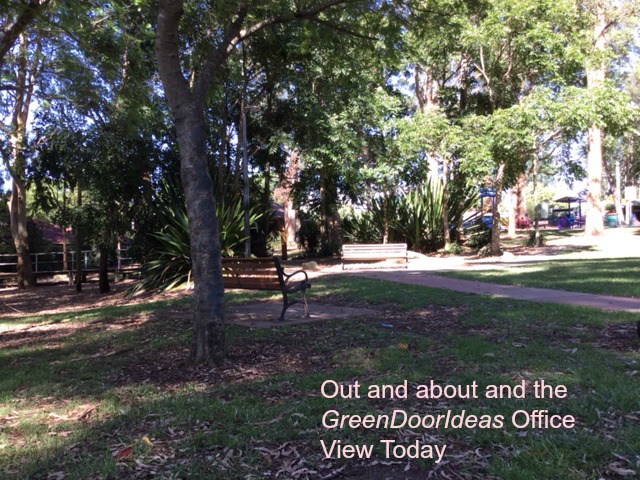How to stop feeling sad
Easy - Practical - Natural - Proven - No cost
How to stop feeling sad after a job loss or redundancy is a very reasonable question to ask. Sadness following any loss is quite normal. My research has indicated that feeling regularly sad though can be an issue and could cause emotional and even physical problems, so how to stop feeling sad is a good question to ask.
Overcoming the shock of job loss or redundancy and looking for a new job can be stressful.
Deepak Chopra [1] says it is important to lower your stress by
- going to bed early and get
eight hours of uninterrupted sleep,
- making sure you exercise and
- breaking up
your normal routine a bit.
Chopra says boredom, lack of sleep, being too sedentary and excess stress are all associated with a sad mood.
The best remedies says Chopra, is to
- lower your stress,
- go to bed early and get
eight hours of uninterrupted sleep,
- make sure you exercise and
- (each day) break up
your normal routine a bit.
Boredom, lack of sleep, being too sedentary and excess stress are all associated with a sad mood.
I totally agree, and for me, finding how to stop feeling sad has also involved my altering
- My thought processes, along with some
- Lifestyle changes.
After finding what has worked for me, I now schedule these into my daily routine.
|
If though you feel very sad and regularly feel sad despite any of these, do seek out professional assistance. Don't put it off. |
I am not a medical specialist, but a scientist and after researching for myself, here is what has worked for me.
Exercise
Whatever exercise you enjoy, regular exercise is beneficial in so many ways and has been excellent for me. I walk as often as I can, and choose to walk than drive if I can. The advantage of walking is that all I need is good shoes and my dog's lead (see later). No special equipment nor subscription is required.
In fact when I need to travel somewhere, I often choose to walk to the station, or to the bus and then walk at the other end. I often take my Notebook computer with me and walk/travel somewhere nice to write. In fact I am writing this now from one of my favourite 'desks'.
Here is the view from my 'desk' as I write these words.

I can personally attest that it is really worthwhile to get out and about, and it helps your creative thinking as well.
The Mayo Clinic [2] says physical activity helps bump up the production of your brain's feel-good neurotransmitters, called endorphins. Although this function is often referred to as a runner's high, a rousing game of tennis or a nature hike also can contribute to this same feeling.
These endorphins are beneficial to our well-being and can improve your mood and help you sleep.
If you don't do anything else, regular exercise will help in your quest to stop feeling sad. Even a 10 minute walk can benefit.
Time to Relax
Do
something you really enjoy. For me that is to read a book. There is
nothing better for me than to go for a walk and take a book.
What
do you do to relax? Maybe it's a massage, or a swim, or reading the
news, or even lying in a park and just watch the clouds float overhead. A close friend swims every day to relax.
Whatever it is for you, schedule some relax time into your day.
Balance in your day is important.
Seeking out happy people
As
you think about it, you may find happy people amongst your friends or
even some family members, maybe former work colleagues. Consider
connecting up with some of these, and politely avoid those that are not
positive. This is a time to be uplifted and meeting up with positive
people will assist.
When volunteering some of my time I have the opportunity to meet with different groups of people. Within these groups there are all sorts of people just like anywhere else, so I can choose who to talk to and meet up with. This has proved a valuable way to assist my happiness, and continuing relationships with people.
I found that was important not to get
isolated and alone for long periods of time. Sure I did need these
times, but I continue to come away from my meetings with others feeling
really good. Even meeting up with a friend.
Most important is to be with those who are uplifting. There is no substitute.
gardening
Do you have a garden, or plants in pots? Do you have a community garden nearby?
Growing fruit and vegetables in a Community Garden as well as at home connects much of what is being discussed here including: exercise, relaxing, working with happy fellow gardeners (I've not yet met an angry gardener) as well as getting out of the house and into the sunshine, which will also make you feel happier.
So, when you ask how to stop feeling sad, gardening with others is certainly one way.
Identify the positives in the situation
When
I looked for the positives, I started to find new opportunities. It
gave me a new focus and enabled me to forgive the decision that caused
the loss.
Being a logical thinker, I often analyse decisions and situations using a SWOT Analysis. A SWOT is a cross where I list in each quadrant the current Strengths/Weaknesses and future Opportunities/Threats. This helps me find the positives and ways to create positive outcomes for those negatives I discover.
Eat well
Eating healthy foods will help your overall well-being and assist your mood.
Foods [2] like asparagus, which has the mood-enhancing nutrient folic acid, can help alleviate stress.
Foods high in Vitamin B, such as avocados, also help relieve stress, and can be beneficial to your feelings. If you do not sleep well, a glass of warm milk can help and also assist with anxiety. Lack of sleep and feeling anxious can increase feelings of sadness.
sleep
Everybody needs sleep in order to maintain physical and mental health.[3] Make it a priority to get 7-9 hours of sleep every night and you will find this will assist to relieve your feelings of sadness.
Insufficient sleep can increase stress and depression.
Short naps of 20-30 minutes may also help you feel better.[4]
NASA conducted experiments with their test pilots and astronauts in 1995 that suggested a “26-minute nap improved performance 34% and alertness 54%.” [5] I have tested this short nap over many months now and can personally attest to waking more alert and able to work well.
Waking from a nap can be hard, and you can sleep longer and wake feeling groggy.
Sleeping long hours each day can also be a sign of depression as is insomnia [6].
Pat your pet

A
pet is the most marvellous thing. My dog (a Jack Russell Terrrier) is always the most loving and
appreciative of my just being there, that it is hard to feel sad when
she is lying with a paw on my foot. Looking at my dog I learn many
things and especially hope, persistence and optimism.
All these have assisted me in times of feeling sad, especially the exercise. A walk with my Jack Russell dog soon cleared up the blues.
Meditation
Meditation can detach you from the world. This detached time will allow you to concentrate, focus and relax.
Starting with a few minutes a day, say 5-10 minutes and then gradually increase your time as you become more proficient.
All you need is a a little uninterrupted time in a quiet and comfortable place. In this place you will be able to eliminate distractions, so you can focus on your breathing which is an important core of meditation.
Your local library will have CDs and recordings of suitable music, words and many resources on meditation.
If though you feel very sad and regularly feel sad despite any of these, do seek out professional assistance. Don't put it off.
You need to be kind to yourself.
support services
If you are feeling down and very upset, maybe you need to speak to someone. Here are some contact numbers to consider where you can talk to someone over the telephone ...
Australia - Lifeline 13 11 14 (24hrs a day) https://www.lifeline.org.au
Support Services in your country https://en.wikipedia.org/wiki/List_of_suicide_crisis_lines
Home > Today and Feelings > How To Stop Feeling Sad
How to stop feeling sad
Sources and Citations
1. Deepak Chopra, How to get out of sad gear, http://www.oprah.com/spirit/Why-Youre-Sad-How-to-Stop-Being-Sad-Deepak-Chopra
2. Mayo Clinic, http://www.mayoclinic.org/healthy-lifestyle/stress-management/in-depth/exercise-and-stress/art-20044469
4. Harvard Medical, http://healthysleep.med.harvard.edu/healthy/getting/overcoming/tips
5. John Medina, Brain Rules, Scribe Publications, 2013, p3 and 167.
6. Beyond Blue, https://www.beyondblue.org.au/the-facts/depression/signs-and-symptoms
This article was printed from GreenDoorIdeas.com




